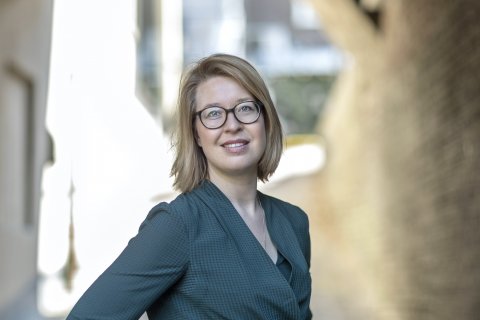Rianne Dekker receives Veni grant for research into online citizen-led policing

Rianne Dekker from Utrecht University has received a Veni research grant of 280 000 euros from NWO to study online citizen self-organisation against crime. Examples include citizen collectives who search for missing persons, groups which are digging into cold cases and those who identify and expose suspects of crime. Within the project entitled "Citizens to the rescue or going rogue?" Dekker will study different forms of online citizen-led policing and how these relate to government law enforcement. Citizen self-organisation also has a dark side. In living labs, Dekker wants to bring together the perspectives of citizens and government.
On social media, citizens are increasingly engaging in public security tasks that traditionally fall within the authority of government law enforcement. Examples include citizen collectives who search for missing persons, groups which are digging into cold cases and those who identify and expose suspects of crime. The latter ranges from WhatsApp neighbourhood watch groups to self-styled pedophile hunters. Social media equip citizens with social ties, resources and techniques to engage in police tasks.
In academic and societal debate, citizen self-organization is generally seen as a positive development. Self-organisation against crime challenges this current understanding of citizen self-organisation in public administration theory and practice. Although these collectives aim to contribute to the common good, many have afflicted harm to others, to police work and the formal justice system.

Bringing together the perspectives of citizens and government
Through case studies, Rianne Dekker will analyse how and why citizens self-organise online against crime. I am particularly interested how known drivers of self-organization change as a result of social media logic. She will examine which common goals and social norms develop within these online collectives. Consequently, her perspective will shift towards government law enforcement, including the police, public prosecution office and the ministry of justice. What are their current responses to online citizen-led policing ,which democratic principles are considered and to what extent are these effectively addressed?
In a living lab Rianne Dekker will collaborate with Dutch law enforcement organisations and citizen collectives to develop and test new modes of collaboration. Apart from providing a setting for experimentation, living labs also involve a social process of developing mutual trust and common norms.
Study into the phenomenon of self-organisation
This research will first contribute to theory on citizen self-organisation. Public administration research thus far, has mainly studied citizen self-organisation within traditional community settings, presupposing its positive outcomes. Online policing initiatives bring together thousands of people worldwide, creating new forms and norms of self-organisation. As citizen self-organisation is generally considered as a win–win to relieve pressure on resources while building stronger, more responsible and democratically engaged communities, we know how self-organization can be stimulated, but not how it can be restricted by government interventions.
Governments have been lacking strategies to harness the potential of online self-organisation against crime, while mitigating its negative effects on society and government law enforcement. This engaged research will help crafting effective, responsive and legitimate governance responses to this intriguing phenomenon – contributing to a safer society.
More information
Would you like to know more about this project? Please contact Rianne Dekker: r.dekker@uu.nl.

